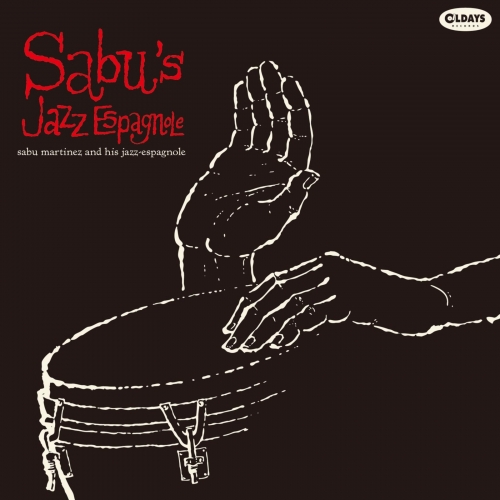The Kiss That Took A Trip - Victims of the Avantgarde (2024) Hi Res
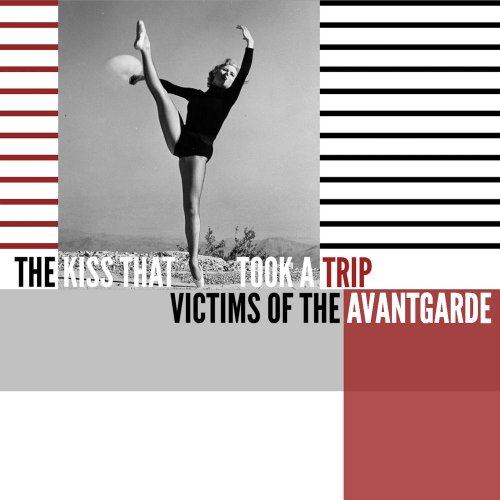
Artist: The Kiss That Took A Trip
Title: Victims of the Avantgarde
Year Of Release: 2024
Label: Autoproducido
Genre: Alternative Rock, Post-Rock, Lo-Fi, Experimental
Quality: 320 kbps | FLAC (tracks) | 24Bit/44 kHz FLAC
Total Time: 01:07:07
Total Size: 154 mb | 439 mb | 764 mb
WebSite: Album Preview
Tracklist:Title: Victims of the Avantgarde
Year Of Release: 2024
Label: Autoproducido
Genre: Alternative Rock, Post-Rock, Lo-Fi, Experimental
Quality: 320 kbps | FLAC (tracks) | 24Bit/44 kHz FLAC
Total Time: 01:07:07
Total Size: 154 mb | 439 mb | 764 mb
WebSite: Album Preview
01. The Kiss That Took A Trip - (God Bless Our) Holy Highways
02. The Kiss That Took A Trip - Sound and Immaculate
03. The Kiss That Took A Trip - Skull and Crossbones
04. The Kiss That Took A Trip - The Truth About Lucifer
05. The Kiss That Took A Trip - The Dailies
06. The Kiss That Took A Trip - Wronged
07. The Kiss That Took A Trip - Gordian Knot
08. The Kiss That Took A Trip - Irma Vep
09. The Kiss That Took A Trip - Blue Is the Flame
10. The Kiss That Took A Trip - Tears of a Demo
11. The Kiss That Took A Trip - Velvet Wall
12. The Kiss That Took A Trip - Whoop Whoop! Pull Up!
Almost seven years had passed after the release of “Punk Cathedral”, and The Kiss That Took A Trip’s very own survival was at stake. A dark concoction of frustration, personal trauma and lack of drive put Trello’s musical child at the verge of withdrawal as late as summer 2023, even when this album was nearly finished. Some might say that things happen for a reason (no, they don’t), but somehow, discipline and the subconscious pursuit of a record that could actually have mass appeal did the trick, and today, “Victims of the avantgarde” is an impressive reality, if only for its stubbornness to be born.
But truth is that the fourth proper album by The Kiss That Took A Trip impresses on more fronts. Firstly, the immediate sensation is that this is the biggest step up in production in The Kiss’ career. Secondly, one can realize that this oeuvre is the culmination of a slow but steady transition from instrumental music to 100 % (sort of) conventional alternative pop/rock songs, that has taken 18 years, so coming of age is more than a statistic this time. In fact, the tracks on “Victims of the avantgarde” sound like something beyond that: they do feel like, at times, destined to sit comfortably on the mainstream. The only extravagance? The songs consistently reach the five or six minute mark. Although a noticeable shortening, The Kiss is proud to keep falling behind the trend of ever diminishing running times of songs…
“Victims of the avantgarde” feels naturally pre-cut in four quarters, like a musical pizza. The first few songs on the record work as the figurehead, unashamedly wearing well-known alternative sounding arrangements on their sleeves, in which is nothing but a nice summary of what this album is about, sonically wise: “Victims of the avantgarde” is a straight love letter to the 90s, an era that has never seen a proper massive comeback. Nevertheless, this recording is by no means a product of nostalgia. The songs on it have a vibrant life of their own and they still sound like The Kiss front to back. “(God bess our) Holy highways” opens the LP with a mood that might be traced back even to Depeche Mode’s “Songs of faith and devotion”, but with a fuzzier tone and silky-like vocals. “Sound and immaculate” fuses industrial guitars and melodic synth beats with ease, and delivers a very palatable callback to the closing decade of the 20th century. “Skull and crossbones” is gritty but uplifting, short and to the point, and it’s as straightforward as it gets, a perfect lead single of endless replay value.
The second quarter of the record turns its attention to quieter tracks, being “The truth about Lucifer” the most minimalistic of them, featuring a slow electronic pulse, delicate electric guitar and intermittent mournful strings, all of them giving shape to an unorthodox structure. A repetitive piano riff is the basis for “The dailies”, one of the most emotional songs The Kiss has ever written, where the electronic elements are disregarded briefly until they come back in all of its glory in its hopeful coda. “Wronged” makes the first half of the LP come to an end, iterating a simple structure that works as an extensive and subtle crescendo of intensity and vindictive feelings.
“Gordian knot” gives way to the second half of the album with its off-kilter lyrics and its sturdy electronic beat, wrapped up in all kinds of distortion, and it’s another tribute to the 90s, the lovechild of Leftfield and Rammstein, and probably the most in-your-face song by The Kiss That Took A Trip. Things keep lively with “Irma Vep”, a self-delusional tale about loneliness with an expansive chorus and a persistent and kind of retrofuturistic synth sequence that doesn’t get in the way of traditional rock instrumentation coupled with cinematic strings. Next song “Blue is the flame” is a polyhedric six minute beauty in which electronica, acoustic balladry and orchestral arrangements take turns to paint a musical picture about unsuccessfully trying to find your place.
The final section of the record sounds full of eclecticism, and it’s a micro catalogue of what The Kiss That Took A Trip can pull off in the framework of a cohesive album: we find playful (sexy?) ambient electronica in “Tears of a demo”, scruffy cigarette-rock about inadvisable love in “Velvet wall” and, finally, profound sadness disguised as the electronic version of a Broadway musical in “Whoop whoop! Pull up!”, the most deeply personal tune in the whole The Kiss’ catalog, and a cautionary tale about epic and ill-advised fights between the brain and the heart.
All in all, “Victims of the avantgarde” goes by like a breeze, tickling the ears in many different ways but always sticking to the (this time) innegotiable premise of melody above anything else. Of all the possible comeback albums in other alternate universes, it’s hard to think of a more suitable one than this, a record that seems to be screaming in every direction how healthy The Kiss That Took A Trip is today, by means of songs that might reach the most diverse audiences. 12 songs that feel like 12 potential singles, each one of them a valid starting point for a next album. A chocolate box of options for the future.
But truth is that the fourth proper album by The Kiss That Took A Trip impresses on more fronts. Firstly, the immediate sensation is that this is the biggest step up in production in The Kiss’ career. Secondly, one can realize that this oeuvre is the culmination of a slow but steady transition from instrumental music to 100 % (sort of) conventional alternative pop/rock songs, that has taken 18 years, so coming of age is more than a statistic this time. In fact, the tracks on “Victims of the avantgarde” sound like something beyond that: they do feel like, at times, destined to sit comfortably on the mainstream. The only extravagance? The songs consistently reach the five or six minute mark. Although a noticeable shortening, The Kiss is proud to keep falling behind the trend of ever diminishing running times of songs…
“Victims of the avantgarde” feels naturally pre-cut in four quarters, like a musical pizza. The first few songs on the record work as the figurehead, unashamedly wearing well-known alternative sounding arrangements on their sleeves, in which is nothing but a nice summary of what this album is about, sonically wise: “Victims of the avantgarde” is a straight love letter to the 90s, an era that has never seen a proper massive comeback. Nevertheless, this recording is by no means a product of nostalgia. The songs on it have a vibrant life of their own and they still sound like The Kiss front to back. “(God bess our) Holy highways” opens the LP with a mood that might be traced back even to Depeche Mode’s “Songs of faith and devotion”, but with a fuzzier tone and silky-like vocals. “Sound and immaculate” fuses industrial guitars and melodic synth beats with ease, and delivers a very palatable callback to the closing decade of the 20th century. “Skull and crossbones” is gritty but uplifting, short and to the point, and it’s as straightforward as it gets, a perfect lead single of endless replay value.
The second quarter of the record turns its attention to quieter tracks, being “The truth about Lucifer” the most minimalistic of them, featuring a slow electronic pulse, delicate electric guitar and intermittent mournful strings, all of them giving shape to an unorthodox structure. A repetitive piano riff is the basis for “The dailies”, one of the most emotional songs The Kiss has ever written, where the electronic elements are disregarded briefly until they come back in all of its glory in its hopeful coda. “Wronged” makes the first half of the LP come to an end, iterating a simple structure that works as an extensive and subtle crescendo of intensity and vindictive feelings.
“Gordian knot” gives way to the second half of the album with its off-kilter lyrics and its sturdy electronic beat, wrapped up in all kinds of distortion, and it’s another tribute to the 90s, the lovechild of Leftfield and Rammstein, and probably the most in-your-face song by The Kiss That Took A Trip. Things keep lively with “Irma Vep”, a self-delusional tale about loneliness with an expansive chorus and a persistent and kind of retrofuturistic synth sequence that doesn’t get in the way of traditional rock instrumentation coupled with cinematic strings. Next song “Blue is the flame” is a polyhedric six minute beauty in which electronica, acoustic balladry and orchestral arrangements take turns to paint a musical picture about unsuccessfully trying to find your place.
The final section of the record sounds full of eclecticism, and it’s a micro catalogue of what The Kiss That Took A Trip can pull off in the framework of a cohesive album: we find playful (sexy?) ambient electronica in “Tears of a demo”, scruffy cigarette-rock about inadvisable love in “Velvet wall” and, finally, profound sadness disguised as the electronic version of a Broadway musical in “Whoop whoop! Pull up!”, the most deeply personal tune in the whole The Kiss’ catalog, and a cautionary tale about epic and ill-advised fights between the brain and the heart.
All in all, “Victims of the avantgarde” goes by like a breeze, tickling the ears in many different ways but always sticking to the (this time) innegotiable premise of melody above anything else. Of all the possible comeback albums in other alternate universes, it’s hard to think of a more suitable one than this, a record that seems to be screaming in every direction how healthy The Kiss That Took A Trip is today, by means of songs that might reach the most diverse audiences. 12 songs that feel like 12 potential singles, each one of them a valid starting point for a next album. A chocolate box of options for the future.
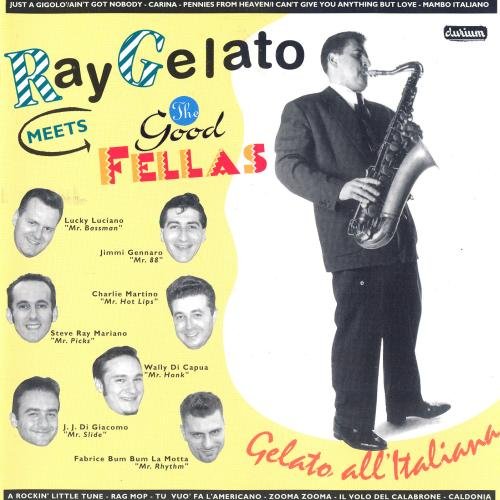
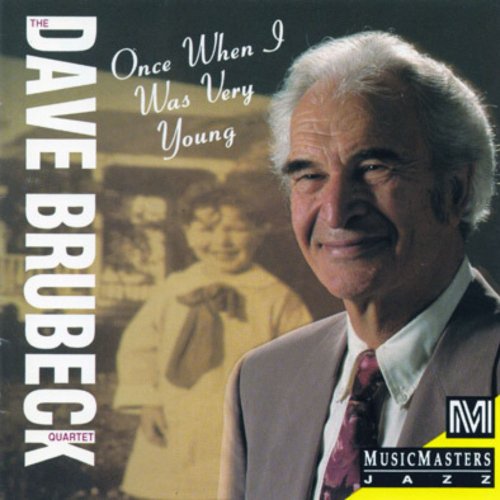

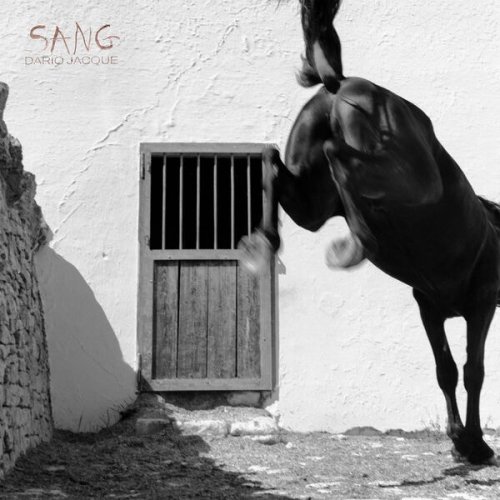
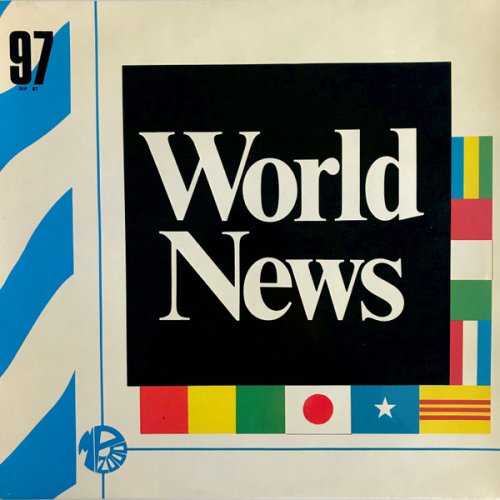
![Macha Gharibian - PHENOMENAL WOMEN (DELUXE EDITION) (2026) [Hi-Res] Macha Gharibian - PHENOMENAL WOMEN (DELUXE EDITION) (2026) [Hi-Res]](https://www.dibpic.com/uploads/posts/2026-02/1770138728_folder.jpg)
![David Chevallier, Sebastien Boisseau, Christophe Lavergne - ReSet (2026) [Hi-Res] David Chevallier, Sebastien Boisseau, Christophe Lavergne - ReSet (2026) [Hi-Res]](https://www.dibpic.com/uploads/posts/2026-02/1770298536_cover.jpg)
